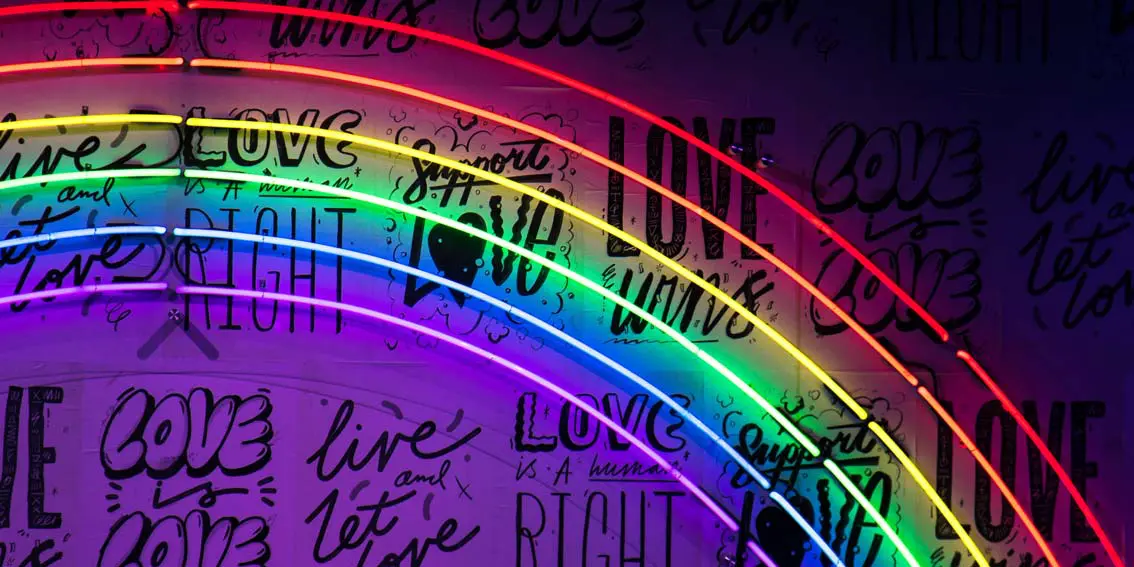RISE MODULE: Pride Month
OVERVIEW & HISTORY
Pride Month is celebrated annually during June in the United States. Recognition takes place in a multitude of ways, from parades and party-like celebrations to seminars and workshops. This perfectly represents the origin of Pride Month as a celebration of community; moreover, as commemoration of the Stonewall Riots, or to many an uprising, in Manhattan. On June 28, 1969, just after midnight, police raided the Stonewall Inn, a known gay bar, using antiquated laws to arrest bar employees and patrons. Publicly displaying gay or non-conforming gender norms were outlawed. As officers roughly handled people from the lesbian, gay, bisexual, transgender and queer (LGBTQ+) community, a crowd grew outside that eventually fought back. There are many different accounts of why and how the uprising began, but the group fought, forcing the officers to retreat from their discriminatory actions. Crowds would disperse but reform continuously until June 1.
The GLF spawned many gay rights groups that expanded the focus to other LGBTQ+ issues and sparked the political activism for equal rights for LGBTQ+ communities.
Many historians say this wasn't the first time LGBTQ+ groups fought against oppression, but it did kickoff the moment that we know today, the Gay Liberation Front (GLF), which was the first group to publicly advocate for equal gay rights. One year after the riots, a GLF planned march from the Stonewall Inn to Central Park in New York became America's first gay pride parade, known as Christopher Street Liberation Day. Simultaneously, GLF marches took place in San Francisco and Los Angeles. Largely, the June 28th event is looked at as the watershed moment for what would grow into a week and then month-long celebration and push for LGBTQ+ Rights. The GLF spawned many gay rights groups that expanded the focus to other LGBTQ+ issues and sparked the political activism for equal rights for LGBTQ+ communities.
It wasn't until 1999 that Pride Month was recognized federally as Bill Clinton was the first president to recognize June as Gay and Lesbian Pride Month. In 2011, President Barack Obama expanded Pride Month recognition to include the LGBT community. Additionally, Obama designated the site of the riots, including the Stonewall Inn, Christopher Park and the surrounding streets and sidewalks, as a national monument in recognition of the area's contribution to gay rights. Pride Month is a time for celebration and remembrance, and conversation and enhancing rights while acknowledging injustices for people a part of the LGBTQ+ community.

CONVERSATION STARTERS:
- Engage with friends, family, and colleagues in discussions about the contributions, culture and history of LGBTQ+ communities in America. For example:
- Do you know the difference between Pride Month and LGBTQ+ History Month, and what is being recognized during each month?
- Read and discuss a book or film on LGBTQ+ history or equal rights issues.
- Participate in your local Pride Parade.
- Engage in critical dialogue around biases and stereotypes affecting LGBTQ+ citizens. For example:
- How do you feel about members of the LGBTQ+ community, and how does it affect your treatment of those people and why?
- How does the intersectionality of people in LGBTQ+ and race play a role in discrimination?
- What stereotypes have you perpetuated about members of the LGBTQ+ community and why?
- How would you react if someone came out to you about their sexuality?
ACTION STEPS
- Discuss the things you read, listen to, or watch regarding LGBTQ+ culture with others and do not be afraid to ask difficult questions.
- Educate yourself and your loved ones by looking up resources that enhance interactions and discussions with friends and colleagues with non-conforming gender identities, sexual orientations or expressions.
- Be critical of yourself, your own communities, organizations, departments, and teams.
- Ask if the culture, practices, and policies are reflective of an inclusive organization that has addressed barriers for people who identify as a member of the LGBTQ+ community
- Speak up when you see someone being subject to discrimination because of their sexual orientation or expression, or gender identity.
WEBSITES
- Human Rights Campaign
- GLAAD (formerly Gay and Lesbian Alliance Against Defamation)
- PFLAG (formerly Parents, Families and Friends of Lesbians and Gays)
- National Center for Lesbian Rights
- American Civil Liberties Union (ACLU)
- National Center for Transgender Equality (NCTE)
VIDEOS/FILMS
- The Stonewall You Know Is a Myth. And That's O.K. by New York Times
- Sex and Gender in Sports Policy: A Human Rights Perspective by Centre for Sport and Human Rights
- Before Stonewall by Greta Schiller and Robert Rosenberg
READINGS
- Stonewall Riots by History.com
- Library of Congress Digital Resource Guide
- Chicago Whispers: A History of LGBT Chicago Before Stonewall by St. Sukie de la Croix
Our
Partners
Stay
In Touch
Follow us on social media.